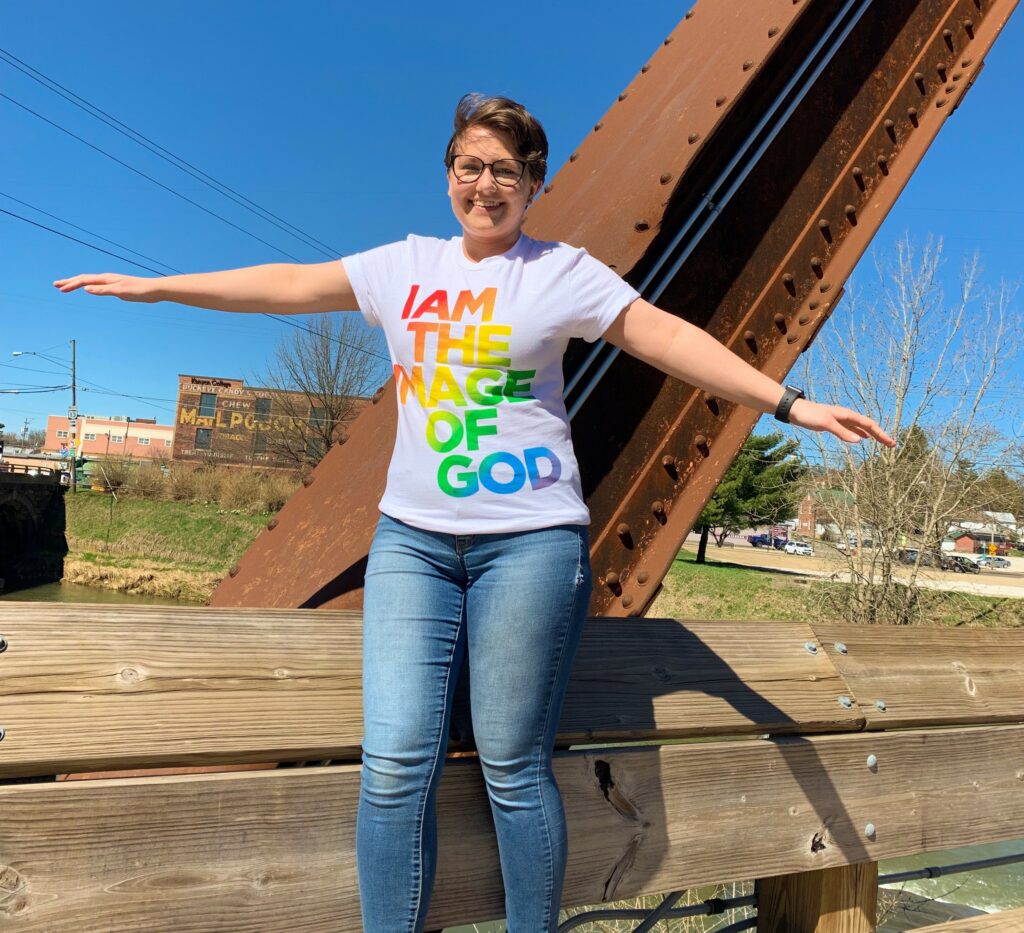
I’ve been thinking about how to tell this story for a long time. I’ve told it to friends over and over, and in doing so, I’ve slowly gained the confidence to share it publicly. At the beginning of this process, my head knew the truth that every part of me is fully loved by God, but I didn’t feel beloved — I felt afraid and alone. With each person I’ve told, I’ve felt stronger, braver, safer in my own skin. Even the less-than welcoming responses have taught me that I am okay, and I can continue my journey even when some of my loved ones cannot come along.
So let me tell you a story.
One Saturday afternoon in September, I had to run by Sierra Trading Post and Marshalls on my way home from work. I don’t remember what I was looking to buy, and whatever it was, I never bought it.
I was headed into a store, when I saw someone who looked like a familiar face––a girl in my graduating class at Kenyon who was a talented writer. Only, instead of thinking to myself, “Oh, that looks like a girl from one of my creative writing classes,” or, “That looks like (insert name here),” I said to myself, almost aloud, “That looks like a girl I had a crush on in college.”
And then, “Wait. What the fuck did I just say?”
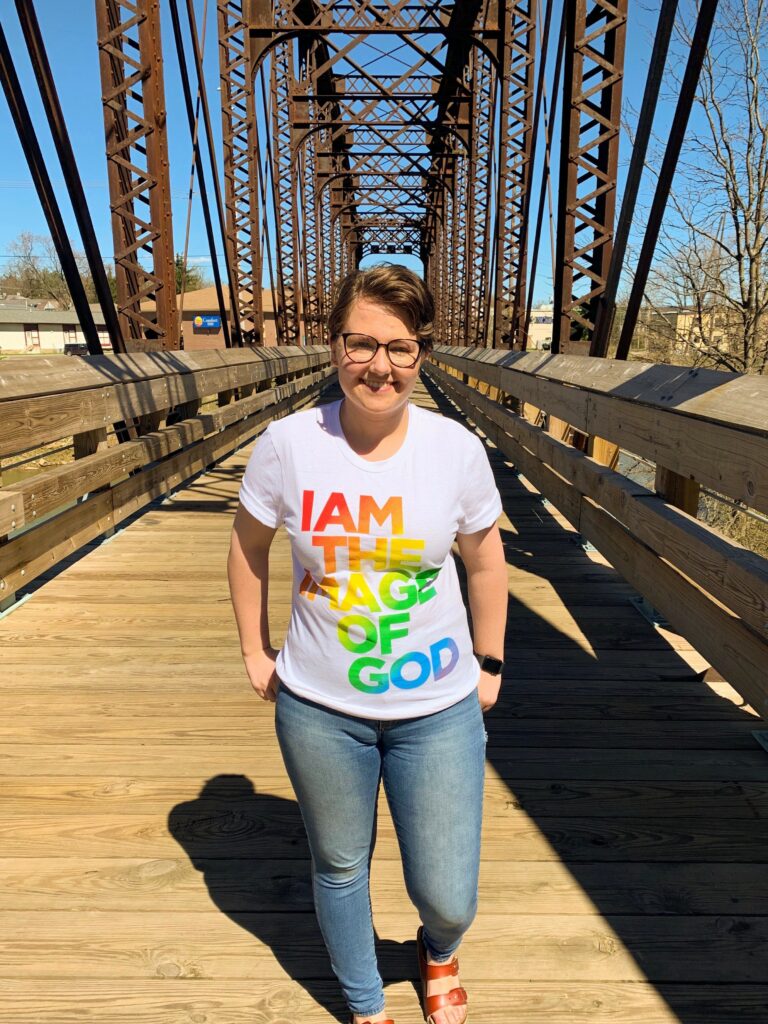
I wandered around Sierra Trading Post for about thirty minutes without buying anything, panicking. And as I did, all the memories patiently waited in line for my attention: when I was 11, I saw a girl on TV, and I just felt something. I asked, “Am I gay?” but I was afraid, so I decided to never think about it again. When I was 17, a girl with sandy hair and freckles was unlocking a dressing room for me, and when she smiled at me, I felt my breath turn shallow. But I was still afraid, and I decided to never think about it again. Many times in college, I asked myself, “Am I gay?” but immediately responded, “No, couldn’t be,” and threw the question away like someone might throw trash out the window of a moving car. The farther I got get away from it, the better.
I already knew that God accepted me.
What I feared was God’s people.
But at the same time, I’d been making gay Christian friends and discovering that the Bible wasn’t nearly as clear on LGBTQ+ inclusion as I’d originally thought. By the time I was stress-pacing around Sierra Trading Post, I’d already believed for several years that it wasn’t a sin to be gay. I’d done my hermeneutical work: having wrestled with the Greek New Testament, read Biblical scholarship from all perspectives, and prayed extensively, I believed that God blessed the lives and relationships of my LGBTQ+ friends. So as I drove home that night with every muscle in my body clenched in terror, I was not afraid that I would go to hell, or afraid that I would be forced to remain celibate for the rest of my life. I already knew that God accepted me. What I feared was God’s people.
Ever since I was a child, I’ve lived with this overwhelming sense that I am only safe if everyone approves of me. In school, it led me to become the teacher’s pet in almost every class. I did everything I could to please the Girl Scout moms, camp counselors, and teachers.
When, at sixteen, I gave my life to Jesus and became an Evangelical Christian, my striving-to-please became even more pervasive. As it turned out, the Creator of All Things had a very specific list of desires for me, and he would approve of me if only I stopped cussing and never watched R-rated movies.
Those of you familiar with Evangelical theology might object to this concept as a distortion Evangelical ideals (and there were subtle differences between what was preached and what I believed), but you have to understand that if only I could be good enough, I believed I would finally be safe.
They had come to stand for the voice of God in my life:
telling me I was loved when I found that so hard to believe.
As I matured in my faith, I discovered that God was far more concerned about love and faithfulness than my occasional use of the word “fuck,” but the Christians around me were still the arbiters of God’s approval. They had come to stand for the voice of God in my life: telling me I was loved when I found that so hard to believe.
I was never going to be able to contort myself into exactly the right shape to fit an ever-changing conception of “enough.”
In turn, I strove to please them as much as possible: learning to believe, think, do, even feel the right things, and staying silent when I didn’t. My spiritual family loved me when I was happy, so I learned to be a beacon of light. I filtered every thought and threw out the ones they wouldn’t like. I shoved aside grief, ran from difficult emotions, and let no speck of doubt cross my mind. There came a point when I was more “Good Christian Girl” than I was me.
When I figured out that I was gay, I finally had to give up. I was never going to be able to contort myself into exactly the right shape to fit an ever-changing conception of “enough.”
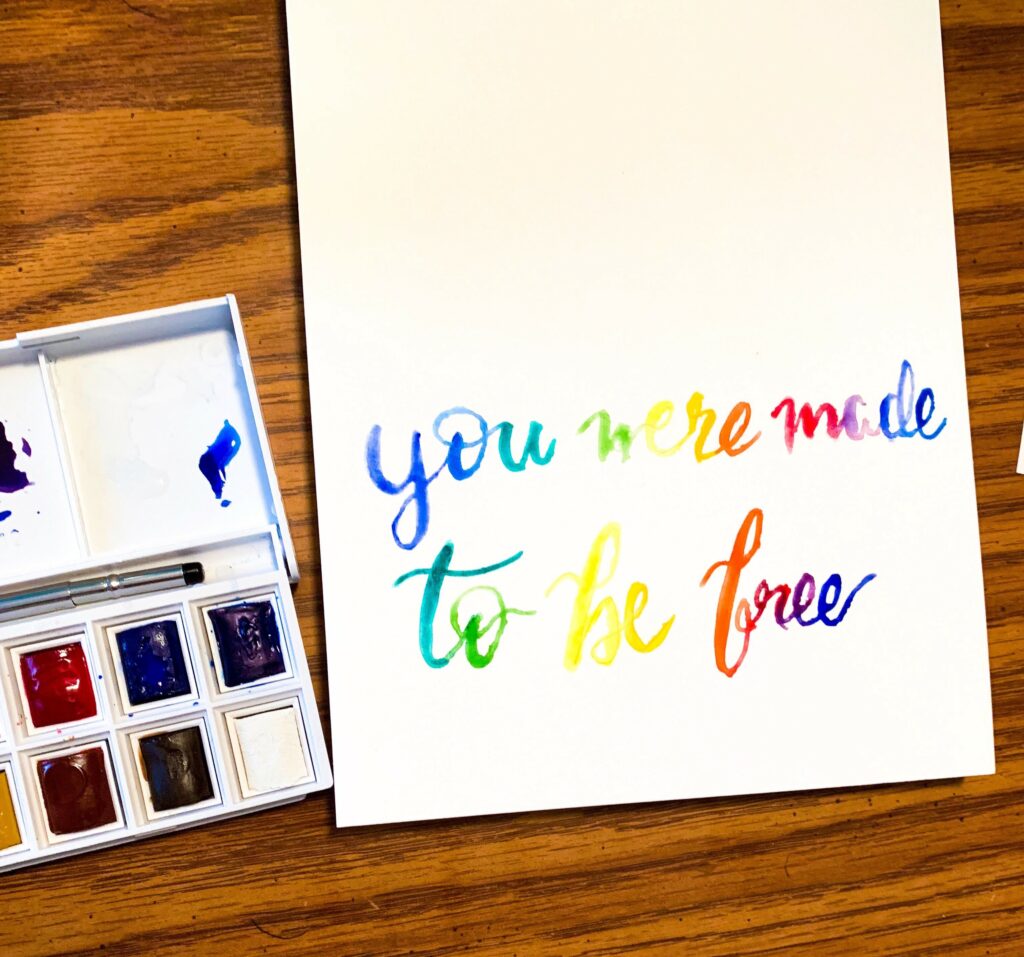
No More Closets is not just about my sexual orientation. It is a declaration and a prayer that I will not live in closets anymore. I will no longer shove pieces of myself into boxes and hide them under the bed in order to be everything everyone wants from me.
The first time I ever came out to someone, I could breathe in a way I never had before. I felt like I belonged in my body––I could finally relax after spending so much mental and emotional energy keeping my sexuality repressed. Later that afternoon, as I was journaling and basking in my newfound freedom, I heard God whisper to me, “you were made to be free.” In that moment, what I knew in my head about God’s acceptance became something I knew with all my heart.
I’d like to end my announcement with thankfulness for all the people whose love and faithfulness have brought me to this point.
To the people of Harcourt Parish Episcopal Church: thank you for loving and accepting me from day one, for having grace for me as I’ve changed and grown, and for being the most supportive, affirming church community I could possibly dream of.
To Zane and Jenn Sanders: thank you for forming my faith while we were at Kenyon, and thank you for continuing to affirm me from afar. You are like family because wherever we are, theologically and geographically, I know you will always be in my corner.
To the people of Journey Church: thank you for continually surprising me with the reality that I am loved when I show my true self. You loved me, closets and all, and you still love me as I’ve stepped out of them. You show me that family still stands and still loves, even in our differences.
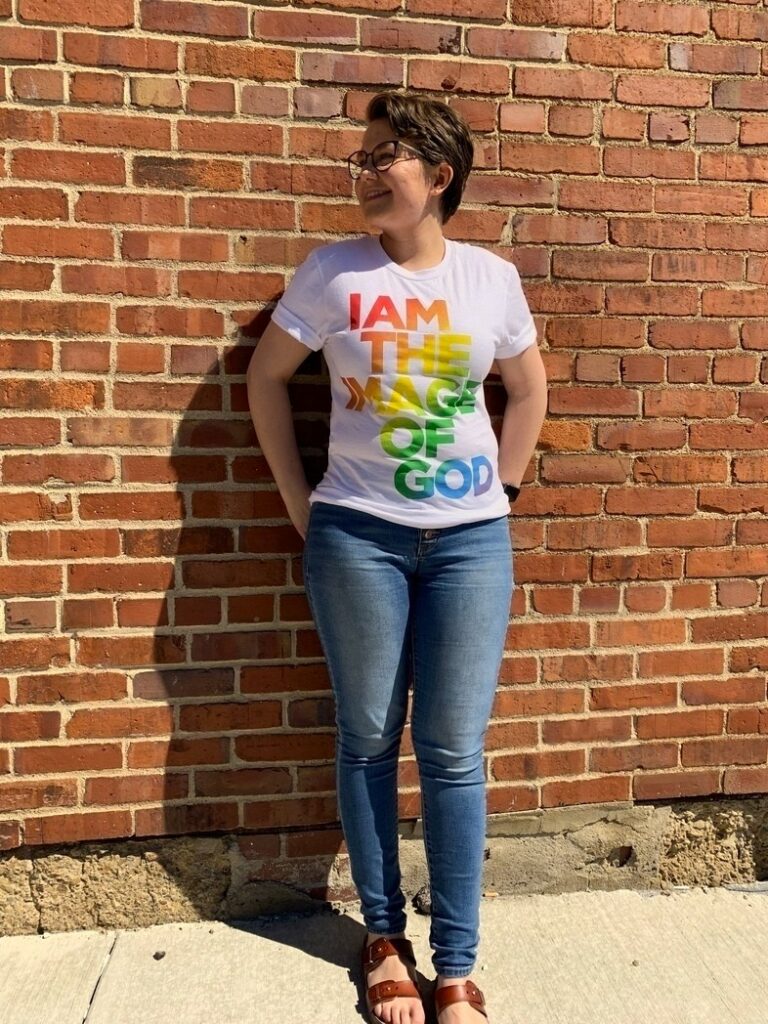
To Rachel Kessler: I don’t know where I would be without you. You teach me that faith, cynicism, hope, and doubt can all have a place in the house of God, but more than that, you show me that I have a place in the house of God. Because of you, I know that embracing all of myself can be worship. Thank you.
To my online community: thank you for making spaces for me to be unapologetically out when I could not do so face-to-face. Thank you for answering DMs from random people you’ve never met, and responding with reactions like, “Absolutely love. We gotta stick together.” (Joshua Hundl, I’m looking at you.) Thank you to the Liturgists Community Singles group for the space to be fully myself, to my girl gang for being here to process all my massive feelings, and to #faithfullylgbt Twitter for teaching me what’s possible.
To the Beale family: thank for teaching me to know Jesus. I know you’re not going to like this new part of my journey, but thank you for giving me Jesus. I love you guys, and I’m more in love with God than ever.
To my therapist: thank you for holding space for me to question, wrestle, get angry, and grow.
To my spiritual director: thank you for continually convicting me of my belovedness, and for making space for God to do the same.
To all my friends (you know who you are) who have welcomed this new part of me: thank you. I love you.
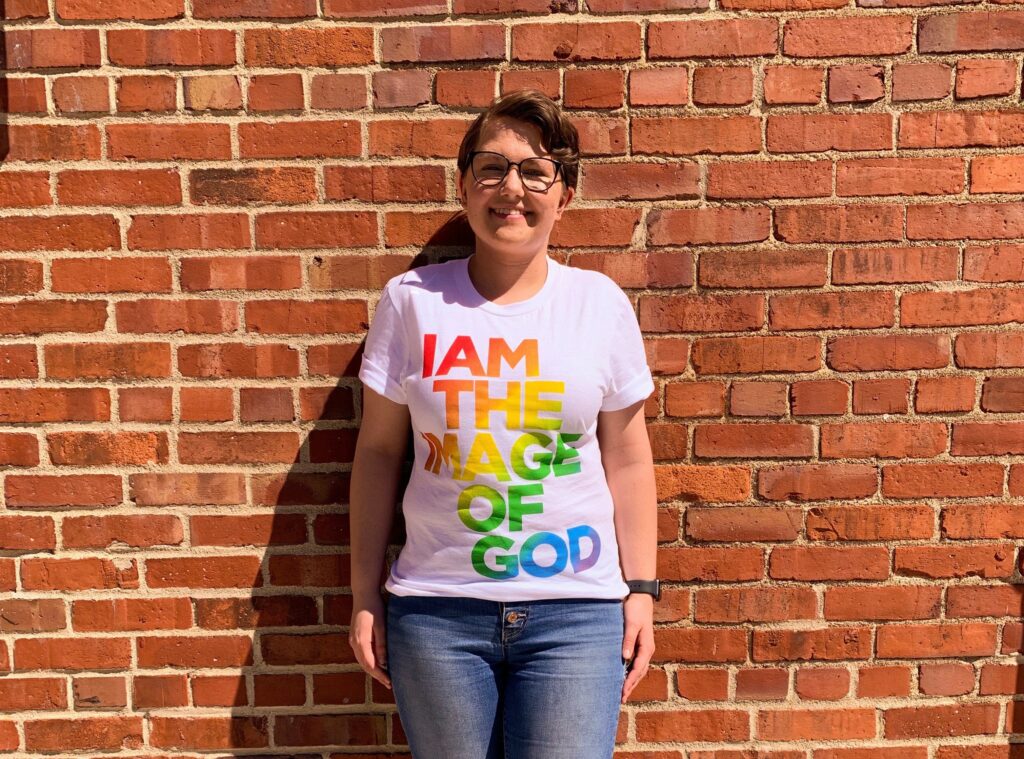
A word about theology
I purposefully did not go into the Biblical and theological reasons why I’m LGBTQ+ affirming. To me, that question has been settled for several years; but also, I am here to tell my story, and my story is not up for debate.
If you are curious about how I arrived at this conclusion, I would be happy to talk with you about it, but I ask that you do some basic reading first. I recommend you begin with either Torn by Justin Lee or God and the Gay Christian by Matthew Vines. The Reformation Project has a fantastic collection of affirming resources, including YouTube videos, events, and even a Brief Biblical Case for LGBTQ Inclusion. Similarly, Queer Grace has a easy-to-read articles explaining the intersection of LGBTQ identities and faith. Lastly, Kevin Garcia has a great video series on how to talk on the Bible and LGBTQ inclusion.
This post was originally published on April 9, 2019.
